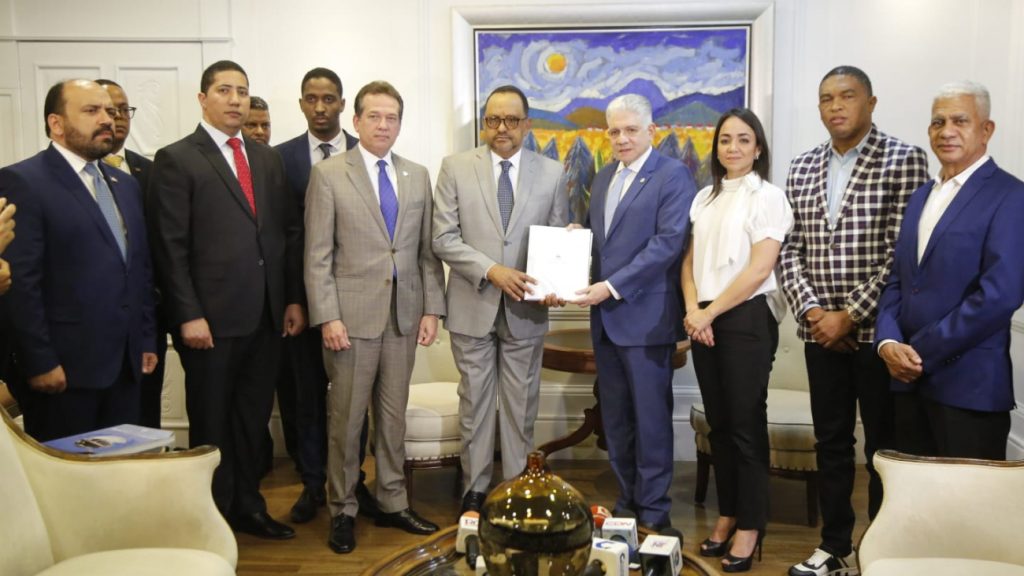
The Executive Branch submitted to Congress bills that reorganize the hydrocarbons sector in the Dominican Republic, public contracting, and regulating public trusts. Legal advisor of the Executive Branch, Antoliano Peralta, deposited the three bills. President Luis Abinader had announced he would be sending the bills to Congress in his 27 of February 2022 rendition of accounts speech.
The Presidency chose to present the bills first to the Senate. Eduardo Estrella, president of the Senate received the bills. He said these would get priority and would be studied by the treasury and energy committees.
The hydrocarbons bill amends Law 112-00 that dates back to 2000, and is about taxing petrol products. The “formula” used by the government to raise or lower the taxes has been criticized for not being transparent and instead at the discretion of the Ministry of Industry & Commerce. The current rising oil prices call for regulatory tools in accordance with the new reality, says the government. The initiative seeks to incorporate in the fuel pricing methodology cost elements that are based on efficiency criteria and best practices, said Industry & Commerce Minister Victor (Ito) Bisonó, who was at the Senate to deliver the new bill.
The Ministry of Industry & Commerce proposes that the fuel adjustments take place biweekly instead of weekly, it creates new mechanisms for times of instability, automates structures and procedures for dismantling of fuel exemptions for energy systems that are not interconnected.
In addition, it proposes to incorporate tools to mitigate the impact of fuel price increases in the international market, and supervise and monitor the actions of the Public Administration and regulated entities.
In regards to the bill that regulates public trusts, the Presidency says it establishes rules for public trusts, their organization, structure and operation, and legal capacity to administer public resources and provide, manage or execute works of infrastructure or services of collective interest. The provisions set forth in this draft are of mandatory application for public entities that structure and constitute a public trust.
The amendments to the General Public Procurement Law that dates back to 2006, the Executive Branch highlights the objective is to make public contracting processes more transparent and agile.
The bill establishes the general legal regime for public contracting, determines the bodies, principles, procedures and rules that apply to it, with the purpose of guaranteeing efficient use of public funds and a greater satisfaction of the needs of general interest and the fundamental rights of the people, applying in transversal manner criteria that ensure sustainable development and promote the use of technology.
The principles of the public procurement system are strengthened, including legality, inclusion, due process, objectivity, impartiality, suitability, planning, sustainability, favorability of national production and favorability of local development.
It establishes an absolute prohibition for the president, vice-president and their relatives by blood or affinity up to the second degree (children, spouse, parents, parents-in-law, sons-in-law and daughters-in-law, grandparents, siblings, grandchildren and brothers-in-law) to contract with the government.
The bill also establishes contracting modalities or procedures according to the amount and the purpose and characteristics of the service to be rendered.
The types of procedure will be public bidding, abbreviated public bidding, simplified contracting, works lottery, reverse auction, minor contracting and contracting subject to threshold. Of these, the main novelty is the abbreviated public bidding, which establishes a reduced term for contracting common and standardized goods and services.
With regard to MSMEs, the law would increase from 20 to 30% the percentage of the National Budget reserved for contracting aimed at this business sector and, within this, from 5 to 10% for women MSMEs.
Read more in Spanish:
Presidency
1 March 2022

